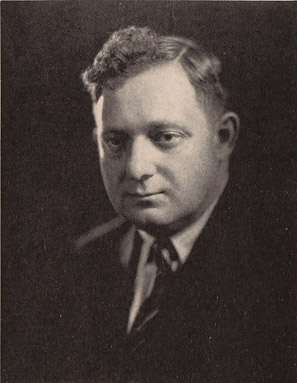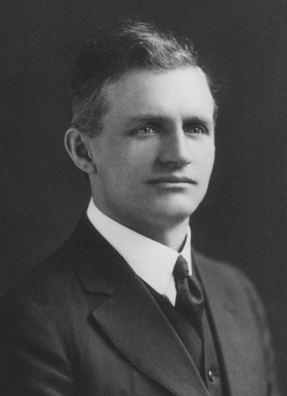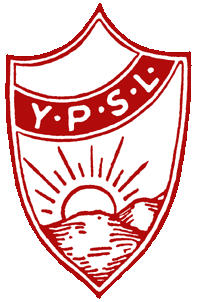
The Socialist Party of America (SPA) was a socialist political party in the United States formed in 1901 by a merger between the three-year-old Social Democratic Party of America and disaffected elements of the Socialist Labor Party of America who had split from the main organization in 1899.

The first modern Farmer–Labor Party in the United States emerged in Minnesota in 1918. The American entry into World War I caused agricultural prices and workers' wages to fall, while retail prices rose sharply during the war years. Consequently, farmers and workers made common cause in the political sphere to redress their grievances.

The Communist Labor Party of America (CLPA) was one of the organizational predecessors of the Communist Party USA.

The International Workers Order (IWO) was an insurance, mutual benefit and fraternal organization founded in 1930 and disbanded in 1954 as the result of legal action undertaken by the state of New York in 1951 on the grounds that the organization was too closely linked to the Communist Party. At its height in the years immediately following World War II, the IWO reached nearly 200,000 members and provided low-cost health and life insurance, medical and dental clinics, and supported foreign-language newspapers, cultural and educational activities. The organization also operated a summer camp and cemeteries for its members.

Charles Emil Ruthenberg was an American Marxist politician and a founder and head of the Communist Party USA (CPUSA). He is one of four Americans to be buried in the Kremlin Wall Necropolis.

Benjamin Gitlow was a prominent American socialist politician of the early 20th century and a founding member of the Communist Party USA. During the end of the 1930s, Gitlow turned to conservatism and wrote two sensational exposés of American Communism, books which were very influential during the McCarthy period. Gitlow remained a leading anti-communist up to the time of his death.

Alfred Wagenknecht was an American Marxist activist and political functionary. He is best remembered for having played a critical role in the establishment of the American Communist Party in 1919 as a leader of the Left Wing Section of the Socialist Party. Wagenknecht served as executive secretary of the Communist Labor Party of America and the United Communist Party of America in 1919 and 1920, respectively.

The Left Wing Section of the Socialist Party was an organized faction within the Socialist Party of America in 1919 which served as the core of the dual communist parties which emerged in the fall of that year—the Communist Party of America and the Communist Labor Party of America.
The Finnish Socialist Federation was a language federation of the Socialist Party of America which united Finnish language-speaking immigrants in the United States in a national organization designed to conduct propaganda and education for socialism among their community.
The Left Wing Manifesto is the name bestowed upon two distinct programmatic documents of the Left Wing Section of the Socialist Party during the factional war in the Socialist Party of America of 1919.

Maximilian "Max" Cohen was an American socialist politician of the early 20th century. Cohen held a series of important posts during the pivotal year of 1919, including Secretary of the Left Wing Section of the Socialist Party for Local Greater New York, Secretary of the Left Wing National Council, and business manager for the New York Communist. Cohen was also a founding member of the Communist Party of America in that same year.

The American Student Union (ASU) was a national left-wing organization of college students of the 1930s, best remembered for its protest activities against militarism. Founded by a 1935 merger of Communist and Socialist student organizations, the ASU was affiliated with the American Youth Congress. The group was investigated by the Dies Committee of the United States House of Representatives in 1939 over its connections to the Communist Party USA. With the group's Communist-dominated leadership consistently supportive of the twists and turns of Soviet foreign policy, the Socialist minority split from the group in 1939. The organization was terminated in 1941 and reformed in 2022.
Eteenpäin was a Finnish-language daily newspaper launched in New York City in 1921. The paper was the East Coast organ of Finnish-American members of the Communist Party USA. The paper moved to Worcester, Massachusetts in 1922 and to Yonkers, New York in 1931. In 1950 Eteenpäin was merged with the Communist Party's Midwestern Finnish-language daily, Työmies to create Työmies-Eteenpäin, which continued to be published from Superior, Wisconsin into the 1990s.

The Young People's Socialist League (YPSL), founded in 1907, was the official youth arm of the Socialist Party of America. Its political activities tend to concentrate on increasing the voter turnout of young democratic socialists and social democrats affecting the issues impacting that demographic group.

The Russian Socialist Federation was a semi-autonomous American political organization which was part of the Socialist Party of America from 1915 until the split of the national organization into rival socialist and communist organizations in the summer of 1919. Elements of the Russian Socialist Federation became key components of both the Communist Party of America and the rival Communist Labor Party of America as "Russian Federations" within these organizations. Following the unification of these two groups in 1921, the resulting unified Russian Communist Federation gradually evolved into the so-called Russian Bureau of the Communist Party, USA.

The Revolutionary Age was an American radical newspaper edited by Louis C. Fraina and published from November 1918 until August 1919. Originally the publication of Local Boston, Socialist Party, the paper evolved into the de facto national organ of the Left Wing Section of the Socialist Party which battled for control of the Socialist Party throughout the spring and summer of 1919. With the establishment of the Left Wing National Council in June 1919, the paper was moved from Boston to New York City gained status as the official voice of the nascent American communist movement. The publication was terminated in August 1919, replaced by the official organ of the new Communist Party of America, a weekly newspaper known as The Communist.
Isaac Edward "Ed" Ferguson (1888–1964) was a North American lawyer and political activist. A founding member of the Communist Party of America, forerunner of the Communist Party, USA, Ferguson is best remembered a co-defendant and attorney in a highly publicized 1920 trial together with party leader C. E. Ruthenberg for alleged violation of New York state law against so-called "criminal anarchism." Following conviction and a term served at Sing Sing prison, Ferguson withdrew from radical politics to become a prominent Chicago civil rights attorney.

James Patrick Cannon was an American Trotskyist and a leader of the Socialist Workers Party.

The Socialist Workers Party (SWP) is a Trotskyist communist party in the United States. The SWP began as a group that was expelled from the Communist Party USA for supporting Leon Trotsky over Soviet leader Joseph Stalin.















